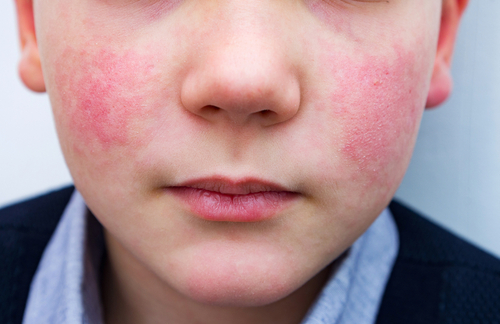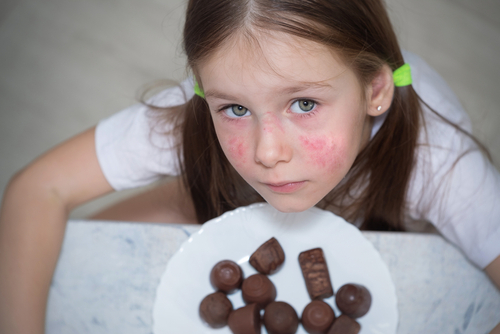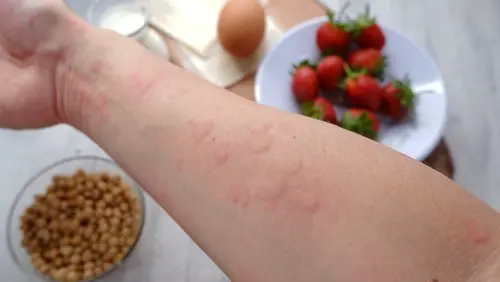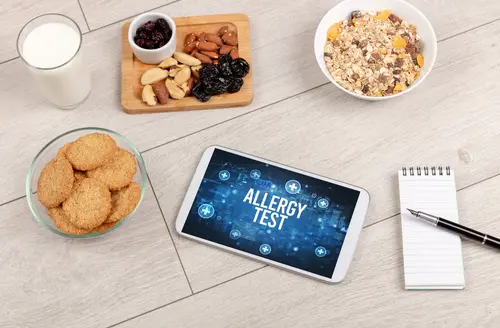When you or your doctor suspect that your child’s skin irritation stems from an allergy, one of the best tests to identify if a child is allergic to a specific food is through an oral food challenge. At RyanRae Skin in Orange County, we administer pediatric food allergies testing in patient’s homes as part of her pediatric allergy care services.


What Are Pediatric Food Allergies?
To conduct oral food challenges (OFC), a child is given small amounts – referred to as doses – of the food in question and then watched for any signs of an allergic reaction. This feeding test is a medical procedure and is typically carried out in the following way:
- The food is eaten slowly.
- The food is eaten in gradually increasing amounts in 15- to 30-minute increments.
- The test typically takes three to four hours but could take longer.
- The test is only given under medical supervision.
- Inhalers, EpiPens, and other life-saving medications are ready to be administered, if needed.
Because increasing amounts of a specific food are given to the person being tested, this increases the chances of an allergic reaction. The results of the oral food challenge deliver an accurate diagnosis that confirms or rules out a true food allergy.
Reasons to Conduct an Oral Food Challenge
An OFC is considered a definitive test because the food is ingested at that moment of testing and shows whether there is a symptom of an allergy or whether a reaction is triggered. Oral food challenges are the logical next step when attempting to diagnose an allergy if a doctor has:
- Conducted an extensive medical history
- Received unclear blood test results
- Done skin tests with inconclusive results
Most OFCs are performed openly where the patient and the person administering the food in the challenge know what is being eaten, like peanut butter, eggs, or milk. Blind food challenges where the test food is hidden in another food or a placebo takes its place are more common in research than clinical settings.

The Difference Between OFC and Oral Immunotherapy
Oral food challenges are different than oral immunotherapy (OIT), which is a medically supervised therapy wherein a patient daily eats small but gradually increasing amounts of a food that they are confirmed to be allergic to. This exposure therapy, of sorts, is done with the goal of desensitizing the patient to the allergy or making them tolerant to it. Sometimes, oral food challenges are administered to patients who are being treated with OIT to see if the therapy is a success.
Preparing for a Pediatric Food Allergies Test
Some preparation is necessary for a person to be a good candidate for an oral food challenge:
- Be in good health the day of the test
- Make sure any chronic conditions like eczema are well-controlled so they do not interfere with the results
- Stop any medications before the test – ask your doctor how long
- Ask your doctor if they will provide the food or if you should provide it
- Have your child’s favorite dishes and utensils at the ready, as well as activities to keep them busy during the test
Undergo an Oral Food Challenge in Orange County
We visit our patients’ homes to diagnosis and treat pediatric allergies. This simplifies the difficulty of getting your child to a doctor and keeping them busy in the waiting rooms, especially if they have an uncomfortable skin condition. Home visits make the administration of an oral food challenge easier for all involved and keeps a child feeling confident in a familiar setting. If your child is suffering from severe skin problems and you suspect that food allergies are to blame, contact RyanRae Skin to schedule a consultation.






